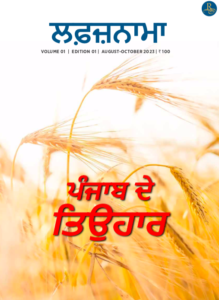BEWARE BEFORE YOU ADD A WISH TO YOUR BUCKET LIST!

‘Make a Bucket list and fill it with dreams that have no boundaries.’ (Annette White)
People spend most of their lives preparing a wish list or Bucket List, an interesting phrase indeed, but hardly endeavor to tick off most of the boxes. Mine is a pretty simple one. I have only one checkbox on my bucket list. The day I meet Shashi Tharoor, I’m ready to kick the bucket.
I know I have started on the wrong trajectory by talking about preparing a bucket list because you might have assumed that I want you to prepare one before it’s too late. Well, my only intention is to entice you to the phrase and lead you to its origin, if you happen to be unaware of its somewhat distasteful origin.
The origin of the phrase ‘bucket list’ is quite recent and refers to a list of things to do or accomplish before one’s death. The term was first used in 1999 by American screenwriter Justin Zackham in the screenplay for his 2007 film The Bucket List.
“Zackham had created his own list called “Justin’s List of Things to Do Before I Kick the Bucket” which he then shortened to “Justin’s Bucket List” (wiktionary.org)
The term, of course, became a rage among youngsters and middle-aged, who embarked upon the project of preparing one for themselves. Soon, the idea of preparing a bucket list caught up with people around the world and why should we Indians be left behind? However, most of us would go into a state of shock if we knew the origin behind the phrase ‘bucket list’ which owes its genesis to another popular phrase from the West- to kick the bucket.
Now this seemingly innocent phrase- to kick the bucket- when put simply, means- to die. However, all is not hunky dory with the (as I mentioned) seemingly innocent phrase, for the phrase has an extremely brutal and virulent background to it. The phrase, most probably, has a Norfolk origin and came into being in the 16th century but gained wider recognition in the late 18th century.
The ‘bucket’, most etymologists agree, comes from the Norfolk word ‘bucker’ though some believe that the definition comes from the French word ‘trebuchet’ or ‘buque’ which means ‘balance’. Both origins, however, point towards a similar meaning. ‘Bucket’ refers to a wooden frame or yoke used by butchers to hang the pigs upside down to slaughter them. The animals were held by their heels in this wooden frame while slaughtering and the resultant ‘death-throe spasms’ or struggle of these captive animals appeared as if they were kicking the wooden yoke or bucket and hence the phrase ‘to kick the bucket’.
Another interesting explanation to the phrase refers to the suicide committed by a man while standing upon a bucket. As he hung the cloth around the beam/ yoke to make a noose for himself, he stood upon a bucket and once the noose was around his neck, he kicked the bucket from under his feet.
A lot many speculations, hence, go forth in finding a suitable explanation to the origin of the phrase ‘to kick the bucket’ and fortunately, the Oxford University Press blog denies the certitude of all the above except for the fact that the phrase has an ‘unpleasant etymology’. So, beware before you add another wish to your ‘bucket’!















